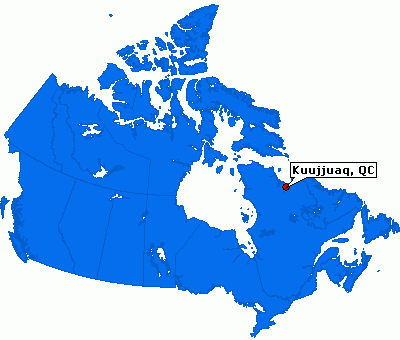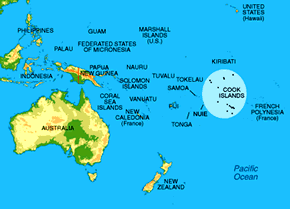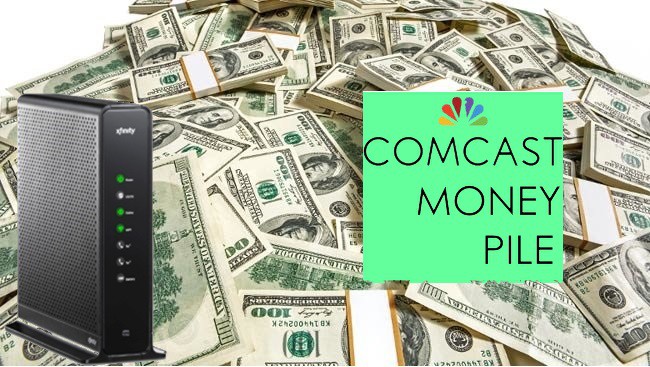 Comcast today quietly announced its broadband customers in Fort Lauderdale, the Keys and Miami, Fla., will find a broadband usage cap of 300GB per month imposed on their Internet access starting Oct. 1, 2015, along with the option of buying a new $30 insurance plan to protect against overlimit fees and restore unlimited access.
Comcast today quietly announced its broadband customers in Fort Lauderdale, the Keys and Miami, Fla., will find a broadband usage cap of 300GB per month imposed on their Internet access starting Oct. 1, 2015, along with the option of buying a new $30 insurance plan to protect against overlimit fees and restore unlimited access.
Stop the Cap! reader Jose from Hialeah informed us Comcast formally began notifying affected customers in e-mail earlier today and updated their website (thanks to DSL Reports):
***An important update about your XFINITY Internet service:
We’re writing to let you know that we will be trialing a new XFINITY Internet data plan in your area. Starting October 1, 2015, your monthly data plan will include 300GB. We’ll also trial a new “Unlimited Data” option that will give you the choice to purchase unlimited data for $30 per month in addition to your monthly Internet service fee.
The majority of XFINITY customers use less than 300GB of data in a month, and therefore will not be affected by these changes. If you are not sure of your monthly data usage, please refer to the Track and Manage Your Usage section below.
Here are the details of the plan:
You’ll get 300GB of data each month. If for any reason you exceed the 300GB included in your plan in a month, we will automatically add blocks of 50GB to your account for an additional fee of $10 each. We’re also implementing a three-month courtesy program. That means you will not be billed for the first three times you exceed the 300GB included in the monthly data plan.
Here are the details of the Unlimited Data option:
If you don’t want a 300GB data plan, the new Unlimited Data option is an alternative that provides additional choice and flexibility, especially for customers who use lots of data. You can choose to enroll in the Unlimited Data option at any time for an additional $30 a month, regardless of how much data you use. Enrollment in this option goes into effect on the first day of the subsequent calendar month.
Notifications:
If you are on the 300 GB plan, we will send you a courtesy “in-browser” notice and an email letting you know when you reach 90%, 100%, 110%, and 125% of your monthly data usage plan amount. You can also elect to receive notifications at additional thresholds as well as set up mobile text notifications. Notices will not be sent to customers who enroll in the unlimited data option.
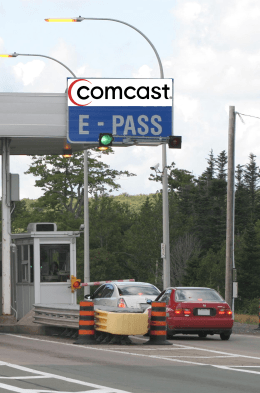
$30 a month will let Floridians bypass Comcast’s overlimit usage tolls.
What is remarkable about the introduction of Comcast’s latest usage cap trial is the naked monetization scheme that accompanies it. Comcast’s old arguments that usage caps provide an even usage experience and fairness for all customers has been replaced with a new $30 insurance plan that effectively restores the unlimited usage plan customers had until this month… for $30 more a month than they used to pay. Once Comcast collects your $30, the sky is the limit as far as usage is concerned.
Customers are howling about the changes on Comcast’s social media platforms and customer support forums. Stop the Cap! strongly urges Comcast customers to also complain to the Federal Communications Commission using this online complaint form. The more Americans that complain about capped Internet, the more likely the FCC will act on the issue.
“Comcast can just do whatever they want without asking or giving notice,” writes Jason. “So basically we all just got a $30 a month increase in our Comcast bill, such BS! I’ve been a Comcast customer over 20 years. I am done. This was the last straw.”
“Kiss my business goodbye,” wrote another customer. “I have had nothing but trouble with Comcast since I’ve had it. Weekly outages, incompetent techs on the phone, etc. AT&T U-verse may not have speeds that are as fast as Comcast, but the service was reliable, and they didn’t try to stab us in the back with ridiculous fees. Hasta la vista, Comcast!”
For now, the Unlimited Data Option is only available to customers in Florida. All other Comcast customers living under the company’s usage caps will continue to face overlimit fees of $10 for each 50GB of usage they run up past their 300GB usage allowance.
Comcast has also suddenly clarified exactly which customers are facing a life with usage caps by publishing a lengthy list of zip codes where unlucky customers will not be allowed to receive unlimited broadband. (Last week, Stop the Cap! shared with readers the story of Comcast customers in Georgia being misled about usage caps by Comcast employees. Woodstock’s two zip codes – 30188 and 30189 – appear on the below list.):
Alabama
35020, 35021, 35023, 35111, 35211, 35401, 35403, 35404, 35405, 35406, 35440, 35444, 35446, 35447, 35453, 35473, 35475, 35476, 35486, 35487, 35490, 35630, 35631, 35632, 35633, 35634, 35645, 35660, 35661, 35674, 35677, 35741, 35748, 35750, 35756, 35758, 35759, 35763, 35773, 35801, 35802, 35803, 35805, 35806, 35810, 35811, 35816, 35824, 35899, 35901, 35903, 35904, 35905, 35906, 35907, 35952, 35953, 35954, 35961, 35972, 35987, 36528, 36571, 36572, 36575, 36582, 36587, 36602, 36603, 36604, 36605, 36606, 36607, 36608, 36609, 36610, 36611, 36612, 36613, 36615, 36617, 36618, 36619, 36652, 36693, 36695
Arizona
85145, 85619, 85653, 85658, 85704, 85705, 85709, 85712, 85713, 85715, 85718, 85719, 85735, 85737, 85739, 85741, 85742, 85743, 85745, 85746, 85749, 85750, 85755, 85757
Arkansas
72301, 72303, 72331, 72364, 72373
Florida – New Area for 300GB Usage Cap; Unlimited Data Option available for $30 extra per month.
33001, 33004, 33009, 33010, 33012, 33013, 33014, 33015, 33016, 33018, 33019, 33020, 33021, 33023, 33024, 33025, 33026, 33027, 33028, 33029, 33030, 33031, 33032, 33033, 33034, 33035, 33036, 33037, 33040, 33042, 33043, 33044, 33045, 33050, 33051, 33054, 33055, 33056, 33060, 33062, 33063, 33064, 33065, 33066, 33067, 33068, 33069, 33070, 33071, 33073, 33076, 33109, 33122, 33125, 33126, 33127, 33128, 33129, 33130, 33131, 33132, 33133, 33134, 33135, 33136, 33137, 33138, 33139, 33140, 33141, 33142, 33143, 33144, 33145, 33146, 33147, 33149, 33150, 33155, 33156, 33157, 33158, 33160, 33161, 33162, 33165, 33166, 33167, 33168, 33169, 33170, 33172, 33173, 33174, 33175, 33176, 33177, 33178, 33179, 33180, 33181, 33182, 33183, 33184, 33185, 33186, 33187, 33189, 33190, 33193, 33194, 33196, 33199, 33233, 33242, 33301, 33304, 33305, 33306, 33308, 33309, 33310, 33311, 33312, 33313, 33314, 33315, 33316, 33317, 33319, 33321, 33322, 33323, 33324, 33325, 33326, 33327, 33328, 33330, 33331, 33332, 33334, 33337, 33351, 33355, 33388, 33394, 33434, 33441, 33442, 34142, 34974
Georgia
30002, 30004, 30005, 30008, 30009, 30011, 30012, 30013, 30014, 30016, 30017, 30018, 30019, 30021, 30022, 30024, 30025, 30028, 30030, 30032, 30033, 30034, 30035, 30038, 30039, 30040, 30041, 30043, 30044, 30045, 30046, 30047, 30052, 30054, 30055, 30056, 30058, 30060, 30062, 30064, 30066, 30067, 30068, 30069, 30071, 30072, 30075, 30076, 30078, 30079, 30080, 30082, 30083, 30084, 30087, 30088, 30090, 30092, 30093, 30094, 30096, 30097, 30098, 30101, 30102, 30103, 30104, 30105, 30106, 30107, 30108, 30109, 30110, 30111, 30114, 30115, 30116, 30117, 30120, 30121, 30122, 30123, 30125, 30126, 30127, 30132, 30134, 30135, 30137, 30139, 30141, 30142, 30144, 30145, 30146, 30147, 30149, 30150, 30152, 30153, 30157, 30161, 30165, 30168, 30171, 30172, 30173, 30176, 30178, 30179, 30180, 30182, 30183, 30184, 30185, 30187, 30188, 30189, 30205, 30213, 30214, 30215, 30220, 30223, 30224, 30228, 30230, 30236, 30238, 30248, 30250, 30252, 30253, 30257, 30260, 30263, 30265, 30266, 30268, 30269, 30272, 30273, 30274, 30276, 30277, 30281, 30288, 30290, 30291, 30292, 30294, 30296, 30297, 30303, 30304, 30305, 30306, 30307, 30308, 30309, 30310, 30311, 30312, 30313, 30314, 30315, 30316, 30317, 30318, 30319, 30320, 30322, 30324, 30326, 30327, 30328, 30329, 30330, 30331, 30332, 30334, 30336, 30337, 30338, 30339, 30340, 30341, 30342, 30344, 30345, 30346, 30349, 30350, 30354, 30358, 30359, 30360, 30361, 30363, 30369, 30410, 30411, 30413, 30414, 30417, 30423, 30427, 30428, 30429, 30434, 30439, 30442, 30445, 30457, 30467, 30471, 30477, 30501, 30504, 30506, 30507, 30517, 30518, 30519, 30520, 30527, 30529, 30530, 30533, 30534, 30542, 30543, 30548, 30549, 30554, 30558, 30564, 30567, 30575, 30606, 30607, 30620, 30622, 30624, 30634, 30635, 30643, 30655, 30656, 30666, 30673, 30677, 30680, 30701, 30733, 30735, 30746, 30802, 30805, 30807, 30808, 30809, 30812, 30813, 30814, 30815, 30816, 30817, 30824, 30828, 30830, 30901, 30904, 30905, 30906, 30907, 30909, 30912, 30914, 31002, 31063, 31064, 31068, 31096, 31301, 31302, 31304, 31305, 31307, 31308, 31309, 31312, 31313, 31314, 31315, 31316, 31318, 31320, 31321, 31322, 31323, 31324, 31326, 31328, 31329, 31331, 31333, 31401, 31404, 31405, 31406, 31407, 31408, 31409, 31410, 31411, 31415, 31419, 31421, 31543, 31545, 31546, 31555, 31560, 31566, 31568, 31569
Illinois
62910, 62960
Indiana
47520, 47586
Kentucky
40150, 40160, 40162, 40175, 42001, 42002, 42003, 42027, 42029, 42048, 42053, 42058, 42069, 42082, 42086, 42127, 42134, 42141, 42152, 42223, 42321, 42323, 42324, 42326, 42330, 42332, 42337, 42344, 42345, 42367, 42374, 42701, 42702, 42712, 42716, 42718, 42724, 42726, 42732, 42733, 42740, 42748, 42749, 42754, 42757, 42758, 42764, 42783, 42788
Louisiana
71201, 71202, 71203, 71209, 71225, 71227, 71229, 71234, 71238, 71280, 71291, 71292, 71294
Maine
03901, 03903, 03904, 03905, 03908, 04003, 04008, 04011, 04032, 04066, 04078, 04079, 04086, 04222, 04287, 04530, 04562, 04565, 04579
Mississippi
38611, 38618, 38619, 38621, 38632, 38635, 38637, 38641, 38649, 38651, 38654, 38661, 38664, 38666, 38668, 38670, 38671, 38672, 38674, 38676, 38680, 38683, 38801, 38802, 38803, 38804, 38824, 38826, 38828, 38829, 38834, 38835, 38843, 38846, 38849, 38855, 38856, 38857, 38860, 38862, 38866, 38868, 38869, 38876, 38879, 39041, 39042, 39043, 39046, 39047, 39056, 39066, 39071, 39073, 39079, 39110, 39145, 39151, 39154, 39157, 39167, 39170, 39174, 39175, 39193, 39201, 39202, 39203, 39204, 39206, 39208, 39209, 39210, 39211, 39212, 39213, 39216, 39217, 39218, 39232, 39269, 39272, 39301, 39302, 39303, 39304, 39305, 39307, 39309, 39320, 39325, 39335, 39338, 39342, 39347, 39348, 39355, 39364, 39366, 39367, 39401, 39402, 39406, 39422, 39437, 39439, 39440, 39441, 39442, 39443, 39455, 39465, 39475, 39477, 39481, 39773
South Carolina
29108, 29127, 29401, 29403, 29404, 29405, 29406, 29407, 29408, 29409, 29410, 29412, 29414, 29418, 29420, 29424, 29425, 29426, 29429, 29438, 29439, 29445, 29449, 29451, 29455, 29456, 29461, 29464, 29466, 29470, 29482, 29483, 29485, 29487, 29488, 29492, 29628, 29803, 29822, 29829, 29831, 29841, 29842, 29847, 29860, 29901, 29902, 29904, 29906, 29907, 29911, 29920, 29924, 29944, 29945
Tennessee
37010, 37013, 37014, 37015, 37020, 37022, 37025, 37026, 37027, 37029, 37030, 37031, 37032, 37033, 37036, 37037, 37042, 37046, 37048, 37049, 37051, 37055, 37059, 37060, 37062, 37064, 37066, 37067, 37069, 37071, 37072, 37073, 37074, 37075, 37076, 37080, 37082, 37083, 37085, 37086, 37087, 37090, 37098, 37115, 37119, 37122, 37127, 37128, 37129, 37130, 37131, 37132, 37135, 37137, 37138, 37141, 37143, 37145, 37148, 37149, 37150, 37152, 37153, 37165, 37166, 37167, 37172, 37179, 37181, 37185, 37186, 37187, 37188, 37189, 37190, 37201, 37203, 37204, 37205, 37206, 37207, 37208, 37209, 37210, 37211, 37212, 37213, 37214, 37215, 37216, 37217, 37218, 37219, 37220, 37221, 37228, 37229, 37232, 37235, 37236, 37238, 37240, 37243, 37246, 37306, 37318, 37324, 37330, 37352, 37366, 37398, 37701, 37705, 37709, 37710, 37713, 37714, 37716, 37719, 37721, 37722, 37725, 37726, 37737, 37738, 37742, 37748, 37754, 37755, 37756, 37757, 37763, 37764, 37766, 37769, 37770, 37771, 37772, 37777, 37779, 37801, 37803, 37804, 37806, 37807, 37820, 37821, 37828, 37829, 37830, 37840, 37841, 37843, 37845, 37847, 37849, 37852, 37853, 37854, 37862, 37863, 37871, 37872, 37876, 37882, 37886, 37887, 37892, 37902, 37909, 37912, 37914, 37915, 37916, 37917, 37918, 37919, 37920, 37921, 37922, 37923, 37924, 37929, 37931, 37932, 37934, 37938, 37996, 37998, 38002, 38010, 38011, 38014, 38015, 38016, 38017, 38018, 38019, 38028, 38029, 38036, 38039, 38046, 38048, 38049, 38052, 38057, 38060, 38061, 38066, 38067, 38068, 38069, 38075, 38076, 38103, 38104, 38105, 38106, 38107, 38108, 38109, 38111, 38112, 38113, 38114, 38115, 38116, 38117, 38118, 38119, 38120, 38122, 38125, 38126, 38127, 38128, 38131, 38132, 38133, 38134, 38135, 38137, 38138, 38139, 38141, 38152, 38157, 38305, 38326, 38339, 38357, 38365, 38367, 38375, 38504, 38547, 38549, 38553, 38555, 38556, 38557, 38558, 38560, 38565, 38570, 38571, 38572, 38577, 38583
 An aversion of open, hilly landscapes and trees is apparently responsible for keeping residents of rural Connecticut from getting broadband service from the state’s two dominant providers — Comcast and Frontier Communications.
An aversion of open, hilly landscapes and trees is apparently responsible for keeping residents of rural Connecticut from getting broadband service from the state’s two dominant providers — Comcast and Frontier Communications.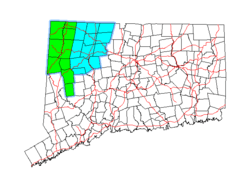
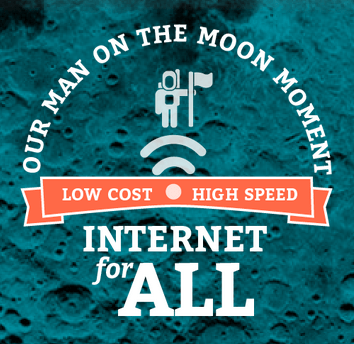


 Subscribe
Subscribe Staffers at the New York State Department of Public Service have recommended the Public Service Commission
Staffers at the New York State Department of Public Service have recommended the Public Service Commission  The Public Service Commission staff looked at the reported annual “synergy savings” of $800 million anticipated by New Charter from streamlining operations and winning enhanced volume discounts to determine the “net positive benefit” for New York consumers from the merger. Here is the formula the PSC used:
The Public Service Commission staff looked at the reported annual “synergy savings” of $800 million anticipated by New Charter from streamlining operations and winning enhanced volume discounts to determine the “net positive benefit” for New York consumers from the merger. Here is the formula the PSC used: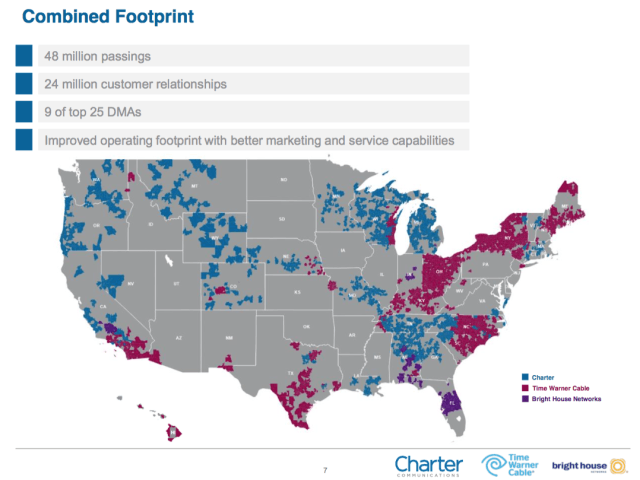 New Charter claims another merger benefit is their plan to upgrade Time Warner customers with new and improved IP-capable ‘Worldbox’ equipment and DVR’s offering more recording capacity. While conceding there were some minor benefits from offering customers more capable equipment, PSC staffers were skeptical New Charter’s plan represented much of a “consumer benefit,” because the equipment is not cheap and New Charter’s plan to eliminate analog television signals will mean every customer will have to rent one of Charter’s new boxes or a near equivalent.
New Charter claims another merger benefit is their plan to upgrade Time Warner customers with new and improved IP-capable ‘Worldbox’ equipment and DVR’s offering more recording capacity. While conceding there were some minor benefits from offering customers more capable equipment, PSC staffers were skeptical New Charter’s plan represented much of a “consumer benefit,” because the equipment is not cheap and New Charter’s plan to eliminate analog television signals will mean every customer will have to rent one of Charter’s new boxes or a near equivalent.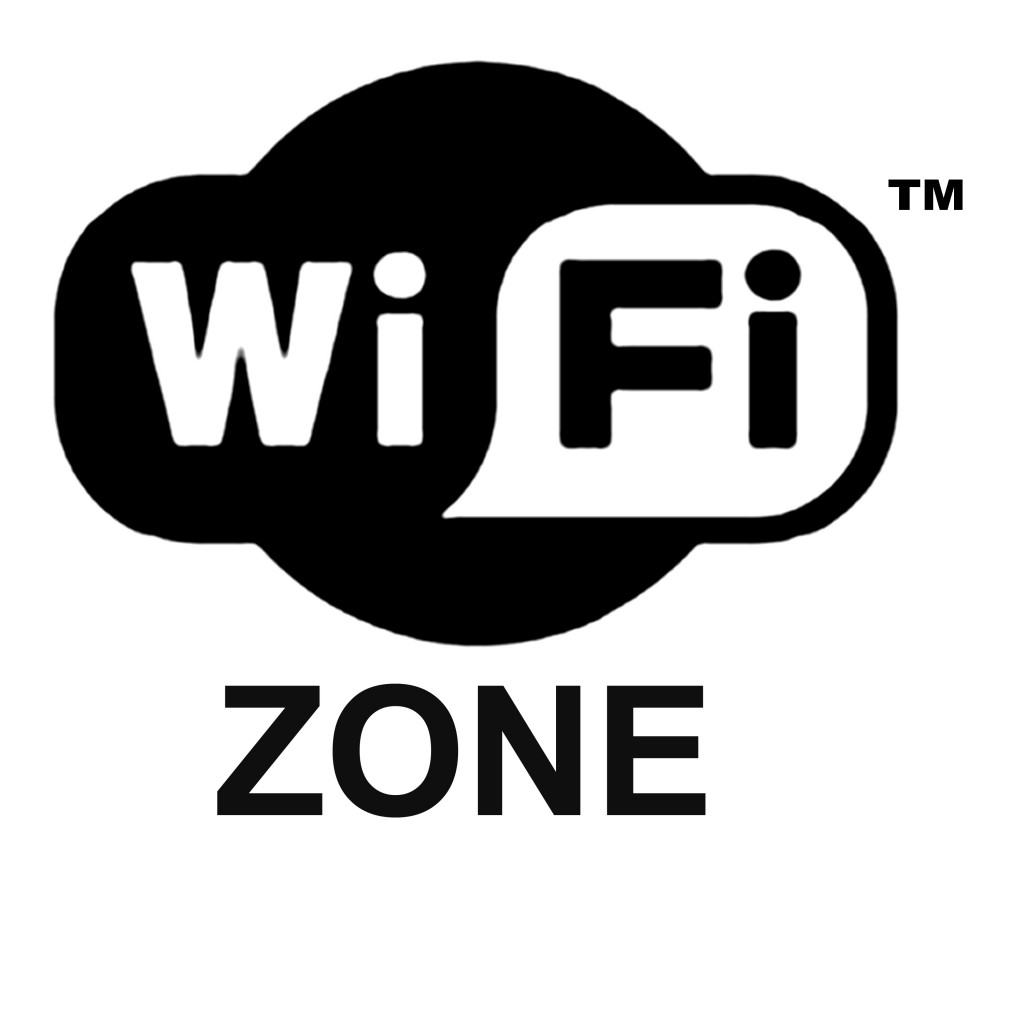 New Charter’s plans for expanded business broadband were also found to be vague, making it difficult to measure how much benefit New Charter would bring commercial clients in New York.
New Charter’s plans for expanded business broadband were also found to be vague, making it difficult to measure how much benefit New Charter would bring commercial clients in New York.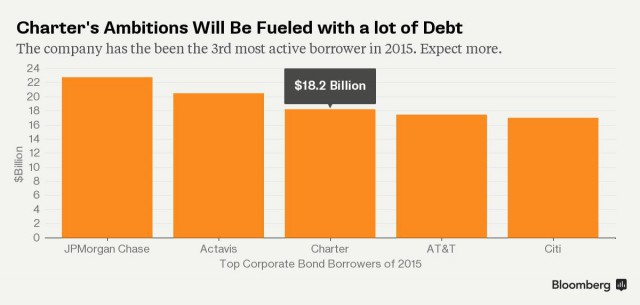

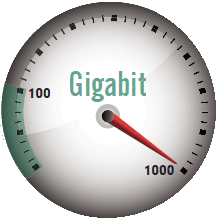
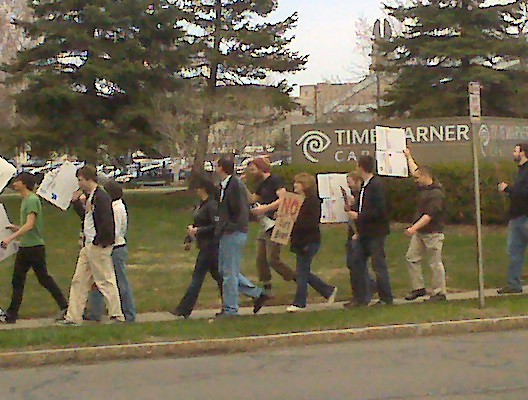
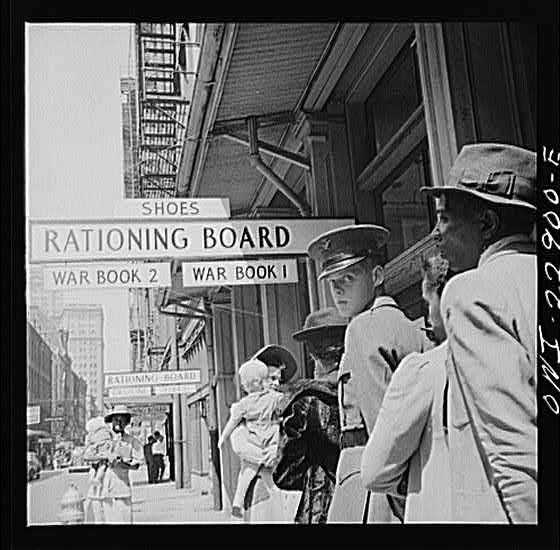
 Comcast today quietly announced its broadband customers in Fort Lauderdale, the Keys and Miami, Fla., will find a broadband usage cap of 300GB per month imposed on their Internet access starting Oct. 1, 2015, along with the option of buying a new $30 insurance plan to protect against overlimit fees and restore unlimited access.
Comcast today quietly announced its broadband customers in Fort Lauderdale, the Keys and Miami, Fla., will find a broadband usage cap of 300GB per month imposed on their Internet access starting Oct. 1, 2015, along with the option of buying a new $30 insurance plan to protect against overlimit fees and restore unlimited access.
 Abbes Nacef was not very happy when he opened his web browser a few days ago to see a message inserted at the top of his screen.
Abbes Nacef was not very happy when he opened his web browser a few days ago to see a message inserted at the top of his screen.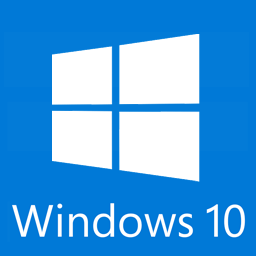 His ISP has agreed to cut the charges in half and has warned all of its customers if they want Windows 10, the ISP will offer them a copy on a returnable USB memory device for free.
His ISP has agreed to cut the charges in half and has warned all of its customers if they want Windows 10, the ISP will offer them a copy on a returnable USB memory device for free.